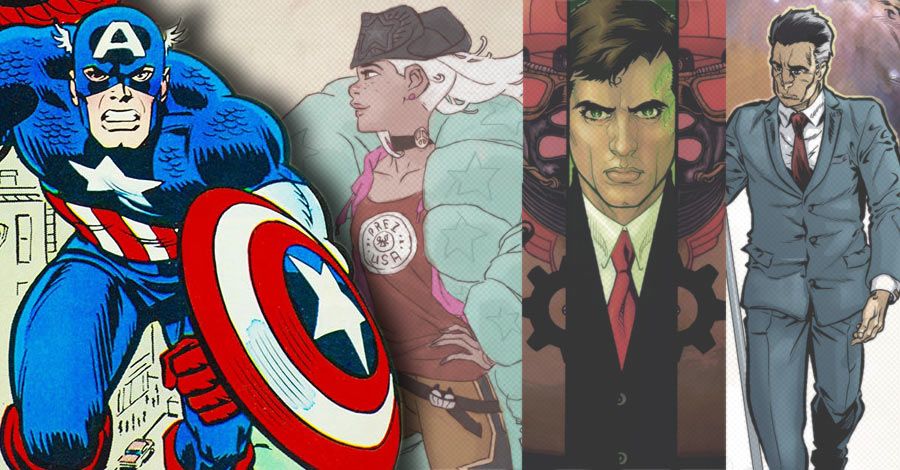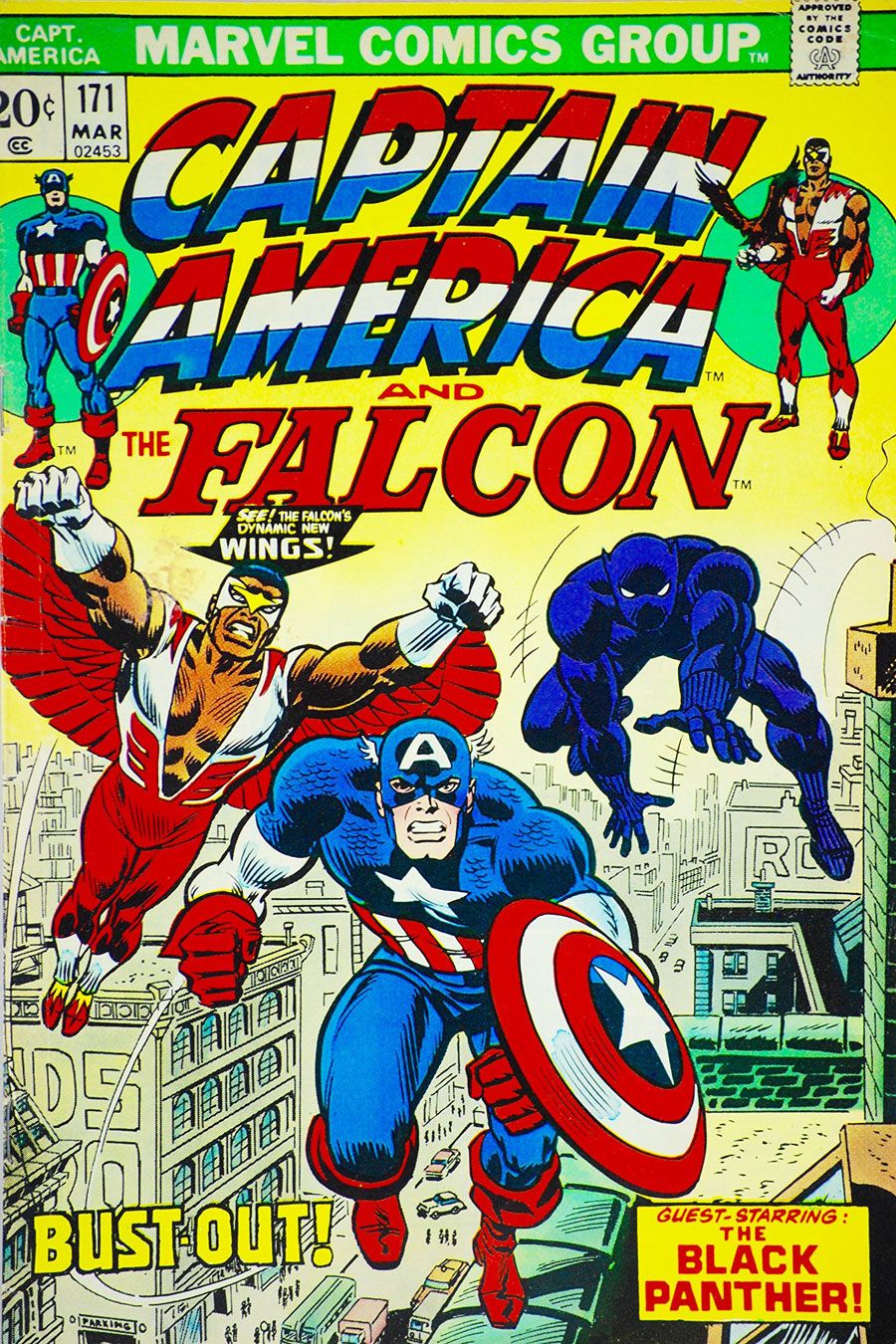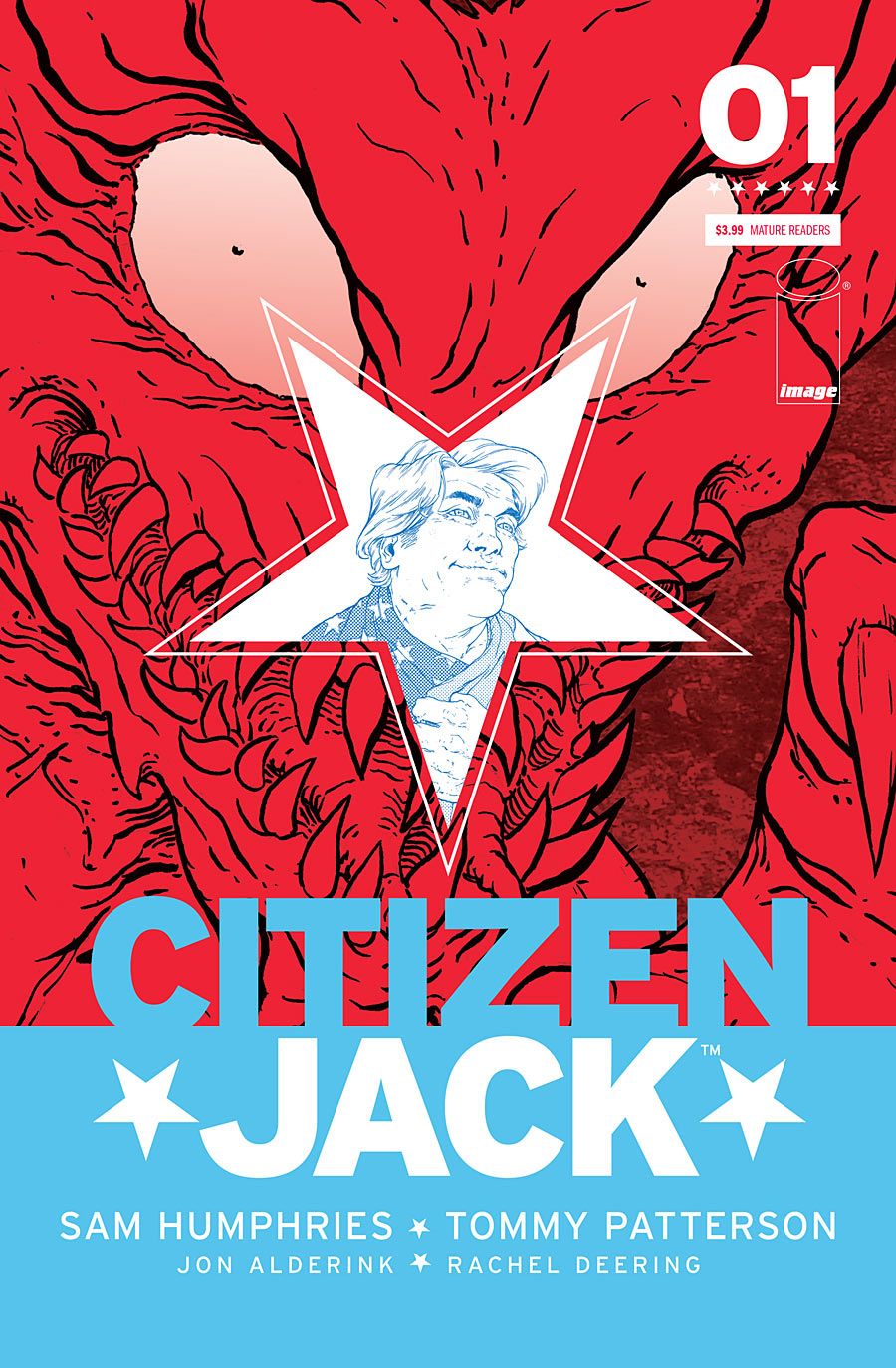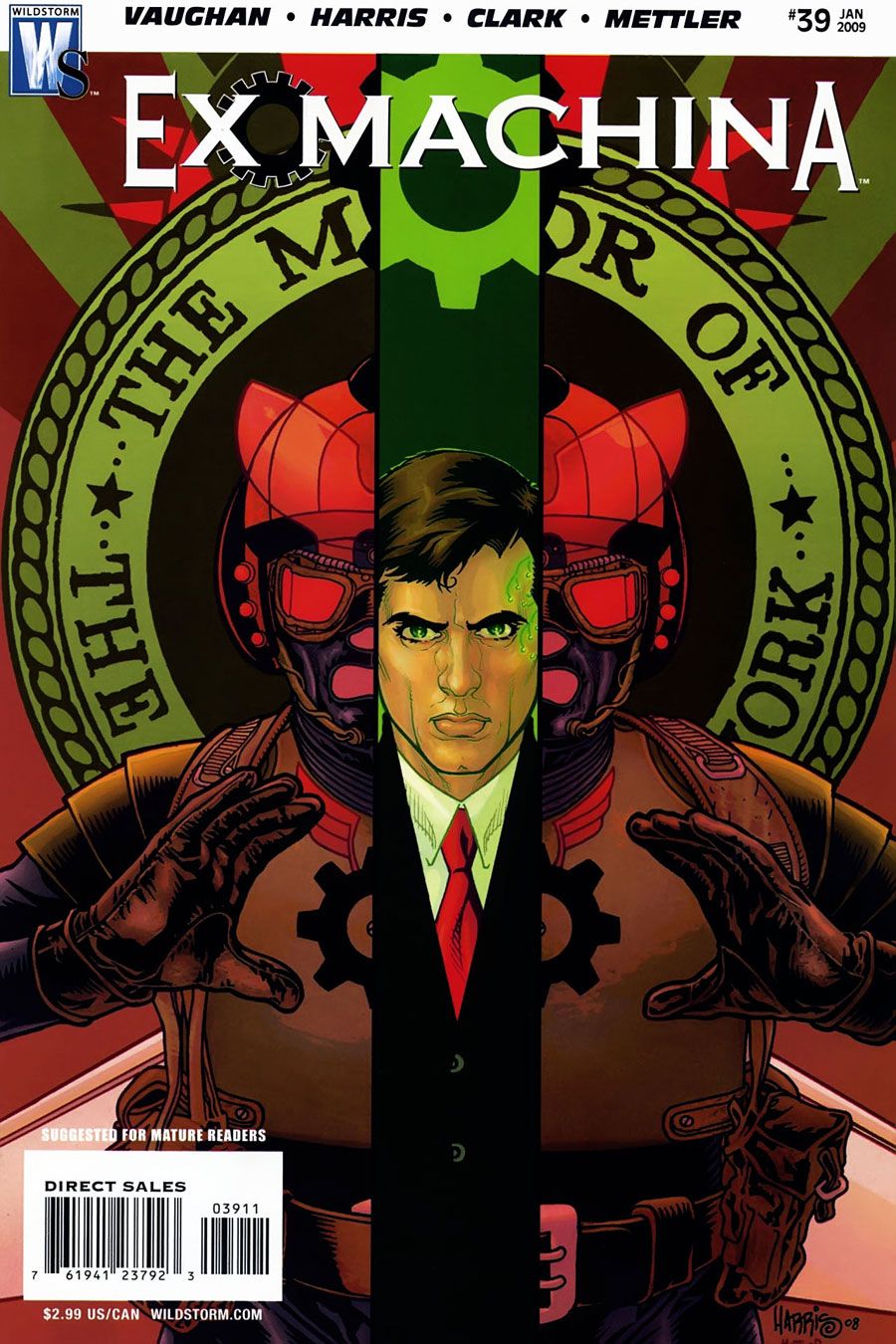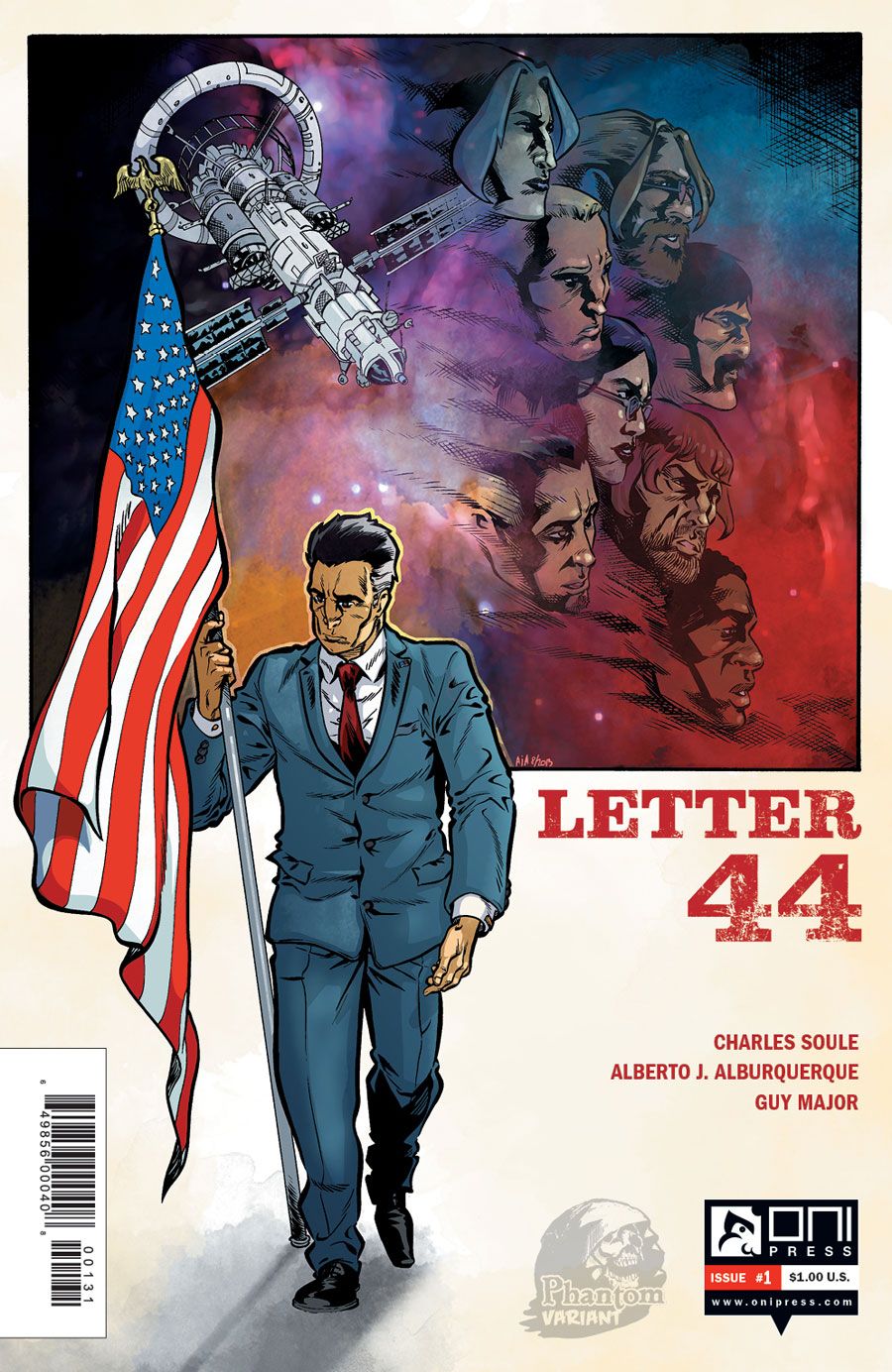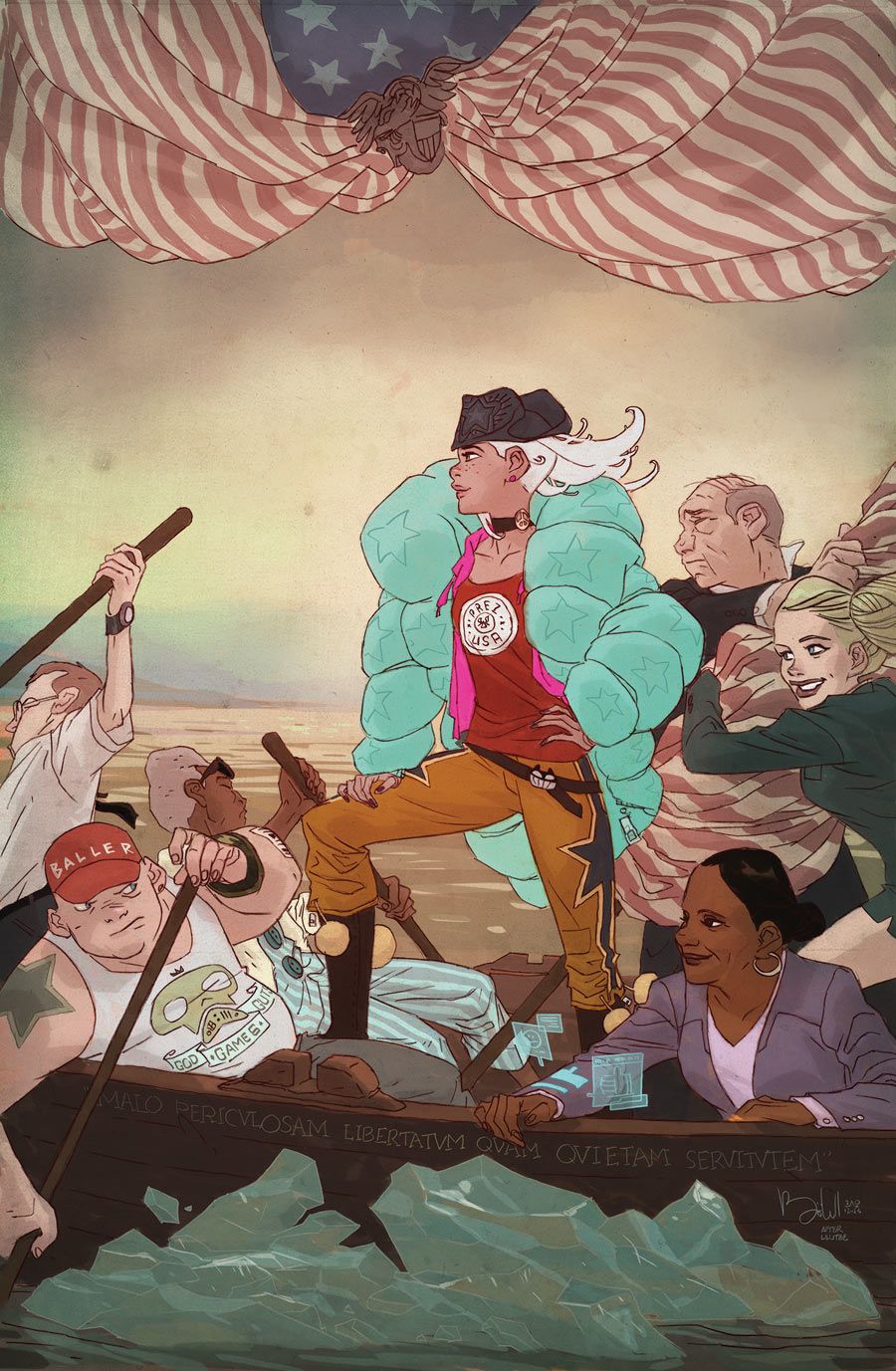Today is Super Tuesday, when voters in 10 states and one U.S. territory cast their ballots in primary elections and, in all likelihood, change the course of the presidential campaign for both parties. It's a significant moment in American politics that will likely stretch well into the night, as news outlets and presidential candidates wait (and wait) for key districts to report in before declaring victory or conceding defeat.
In short, we could have a long wait ahead of us. And what better way to pass the time than with a selection of comic books that prominently features political figures?
RELATED: Marvel Asks Fans to "Vote Loki" in New Presidential Election-Based Series
In these five titles, which range from horror comedy to science fiction to costumed adventure, the politician is depicted as the villain, the hero and something in between. But each has something to say about the American political system -- demons, shadowy cabals and all.
"Captain America and the Falcon" #169-175 ("The Secret Empire")
by Steve Englehart and Sal Buscema (Marvel)
Marvel's "Captain America" has drawn criticism from conservatives in recent years, most notably in 2010 with a reference to the Tea Party, and again just last year when Sam Wilson's confrontation with the Sons of the Serpent on the U.S.-Mexico border was viewed by some as an attack on opponents of illegal immigration. As politically charged as those incidents may be, they pale in comparison to the 1973 "Secret Empire" storyline.
Written by Steve Englehart in the middle of the Watergate scandal, the arc involved efforts by the subversive organization the Secret Empire to turn the American public against Captain America and the Falcon. After discovering the Secret Empire's influence extended to the highest echelons of government, Captain America pursued the group's hooded leader, Number One, into the White House itself. Unmasked (but never shown on-panel), Number One committed suicide rather than have his identity exposed. So, who was the criminal mastermind? The story never explicitly states, but Englehart has been clear since then that he intended Number One to be President Nixon, but realized it would be too controversial for the time.
"Citizen Jack"
by Sam Humphries and Tommy Patterson (Image Comics)
Debuting last fall, just as the 2016 presidential race was heating up, "Citizen Jack" centers on Jack Northworthy, a failed hockey player turned failed mayor turned small-town joke who makes a deal with a devil: A manipulative demon named Marlinspike promises if Jack does exactly what he says, he'll be the next president.
The horror comedy is a satirical look at American politics that doesn't take aim at the Republicans or the Democrats -- here, they're the Patriot Party and the Freedom Party -- but rather a broken system that only seems as if it's manipulated by demonic forces.
"Ex Machina"
by Brian K. Vaughan and Tony Harris (DC Comics/Wildstorm)
Written in the wake of 9/11, "Ex Machina" is a political superhero comic that's been described, somewhat accurately, as "The West Wing" meets "The Greatest American Hero" (or "Unbreakable," as Vaughan wrote in his pitch). It centers on Mitchell Hundred, the world's first and only superhero -- he can make machines do what he tells them -- who's viewed with mixed emotions by New Yorkers, until the morning of Sept. 11, 2001, when he's able to redirect one of the hijacked planes and save one of the towers of the World Trade Center. An immediate American hero, he's quickly elected mayor of New York City.
"Ex Machina" isn't a traditional superhero story by any means. It's an examination of politics, power, vigilantism, resilience, and a rebounding city.
"Letter 44"
by Charles Soule and Alberto Jimenez Alburquerque (Oni Press)
As high concepts go, this one is tough to beat: President-Elect Stephen Blades slips into the Oval Office just before his inauguration to find a letter from his wildly unpopular predecessor, who dragged the country into war in the Middle East and tanked the economy. It turns out, however, those weren't terrible missteps but calculated ruses to prepare the U.S. military for the real threat: an alien construction project in the asteroid belt between Mars and Jupiter.
Confronted not only with the knowledge of a potential extraterrestrial enemy, but also a nine-person crew covertly sent into space to assess the danger, Blades suddenly finds his ambitious agenda vastly changed. As his predecessor writes, "Economy, social policy, all that crap doesn't mean a damn thing anymore. Not when something's up there building a gun."
"Prez"
by Mark Russell and Ben Caldwell (DC Comics)
For such a quintessentially 1970s creation -- the first teenage president of the United States! -- "Prez" has proved surprisingly timeless. In the short-lived original series by Joe Simon and Jerry Grandenetti, the influence of youth culture is so great that the Constitution is amended to lower the age of presidential eligibility, leading to the election of Prez Rickard.
The concept, with the corrupt Boss Smiley but minus the bell-bottoms and legless vampires, made the leap last year to our near-future in a revived "Prez" that sees 15-year-old Beth Ross propelled from social-media sensation to leader of the Free World. It's a comic about Internet celebrity, political corruption and, just maybe, the promise of the next generation. While "Prez's" future certainly looked grim, we learned earlier this month that the series will return in October, just in time for the presidential election.
What are your favorite political comic books? Let us know in the comments!

